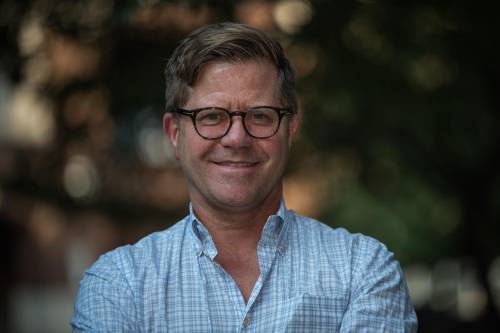Wrestling with Toxic Masculinity
Peace Within
Rev. Carl Horton
1 Corinthians 13:4–8
Love is patient; love is kind; love is not envious or boastful or arrogant or rude. It does not insist on its own way; it is not irritable or resentful; it does not rejoice in wrongdoing, but rejoices in the truth. It bears all things, believes all things, hopes all things, endures all things. Love never ends. But as for prophecies, they will come to an end; as for tongues, they will cease; as for knowledge, it will come to an end. (NRSV)
Reflection: I recently saw a TV ad for some sort of supplement with the lead line, “Man up, America!” The narrator’s voice had the tone and tenor of a World Wrestling Federation match announcer. “Guys,” he growled, “this is no time to be soft. Maximize your masculinity.”
From an early age, we are the recipients of a societal, slow-drip infusion of messages telling us what we are supposed to be like, look like and act like. Sometimes these messages are like foghorns: blasts of noise intruding in a commercial. More often, though, they are imperceptible and pernicious whispers that seep into our consciousness, needling our sense of self and scratching at the surface of our identities. Over time, their corrosive accumulation can become toxic.
We are in a time of reckoning for the societal structures and norms that have been in place up until now. Call it a shift, an earthquake, or an awakening, but 2020 seems like a socially-distanced “come to Jesus” year. Much of what we have accepted as “normal” is not and should not be “normative.” The curtain is being pushed away, the monuments are being pulled down, and power structures of the past are being revealed as fraudulent and certainly not “of God.” If anything, I think we’re being called not to “man up” but to “man down.”
Over time, our understandings of gender are deepening and the ideals of masculinity and femininity are cracking, opening up room for myriad expressions of our true selves. If we maximize anything, let us maximize the peace within that comes from loving ourselves kindly as the complete persons God has created us to be. Confidence in God’s vision for us goes much farther than any supplement.
Practice for Peacemakers: Consider an aspect of your identity that doesn’t “conform” to societal norms or expectations. Embrace, accept, love and thank God for that “nonconforming” part of yourself.
Prayer: God of love, turn us from conformity toward authenticity and help us love — even ourselves — as you would have us love. Amen.

Carl Horton serves in Louisville, KY, as coordinator of the Presbyterian Peacemaking Program.
This year’s Season of Peace Resources are designed to help participants explore practices for building peace on every scale. From the personal level to global issues, these reflections and prayers will help grow the faith and witness of the whole church. Throughout the 29 days of the 2020 Season of Peace, we are invited to reflect upon:
Week 1 September 6–12: Peace Within
Week 2 September 13–19: Peace in Relationships
Week 3 September 20–26: Peace in Community
Week 4 September 27–October 3: Peace in the World
Final Day October 4: Holistic Peacemaking
